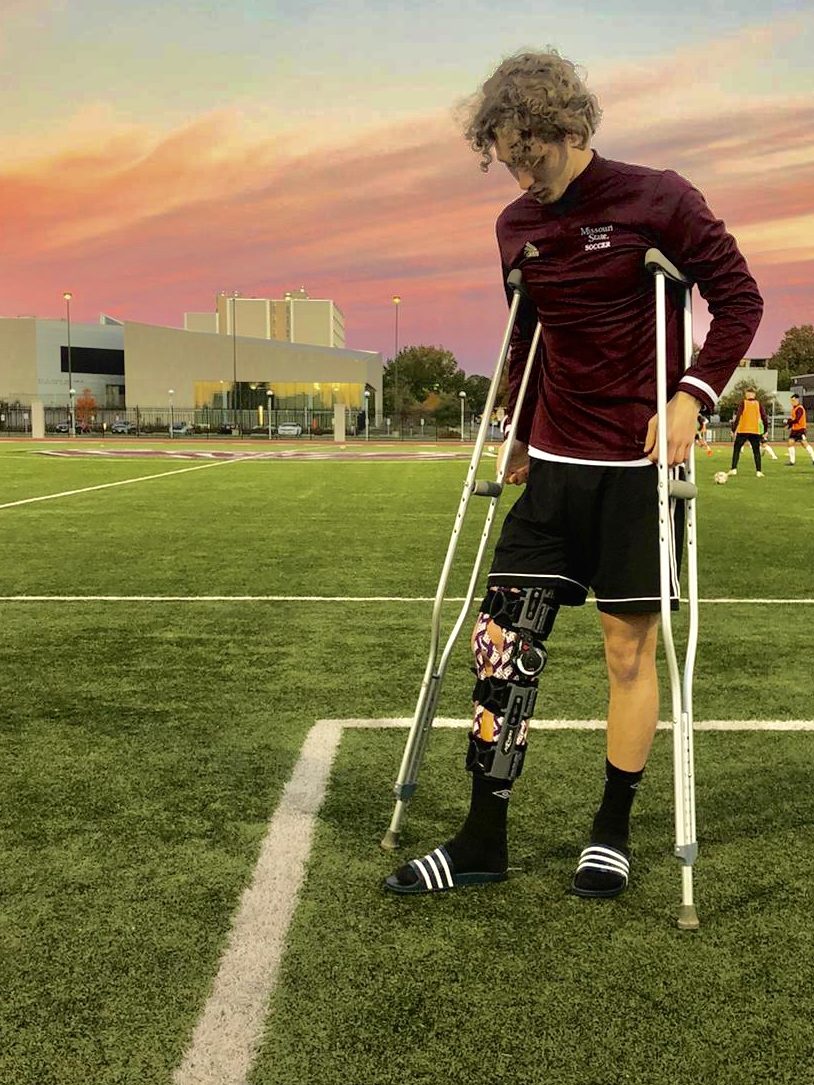Injuries, Recovery & Mental Health
By Mattis Koch
Mattis Koch is a current student at Missouri State University, and former collegiate soccer player. Mattis is originally from Germany, and has played internationally with FC Union Berlin Youth Club.
And there I was laying on the pitch with that weird numbness in my right leg. I knew exactly what happened because I had this feeling before: I tore my ACL. Again. The second time this year. I didn’t know what to think or what to feel anymore. 9 months I had been working 4 to 5 hours a day with athletic trainers, doctors, and coaches with the goal in mind to play soccer again. I missed this feeling of leaving my heart out on the pitch, competing, winning, losing, trash-talking, and just everything soccer is about. 9 long months of pain, sweat, and tears just to have those feelings back and in the second session with my new team, I tore my ACL again.

I came from an elite youth academy in Germany to a top 10 D1 soccer program to get injured on the second day of practice. 6,000 miles away from my family and friends, laying on the turf feeling like this moment would never end. My knee didn’t even hurt, I was too devastated to feel anything. Why does this happen to me? Why again? What do I do now? Can I ever play again? The following months after my second ACL reconstruction surgery I did not have the fire in me that I had during my first rehab. I was anxious to play again. What if I tear it a third or a fourth time? I was supposed to go pro, earn the big bucks, win titles, be famous and not looking down on my crutches while desperately trying to walk again.
I wish this was the amazing story of how I still found the motivation to return to play soccer, win the NCAA championship, and get drafted to the MLS, but it’s not. This is the story on how to overcome and deal with mental health issues during a career-ending injury and how to deal with the fact that a lifelong dream can be taken from you in a short period of time. I felt this certain emptiness inside me and didn’t know how to fill it. I felt like a failure, and I felt alone. All my friends are out there signing contracts and winning titles while I’m just trying to deal with the fact that I will never do any of those things again.
This is the story on how to overcome and deal with mental health issues during a career-ending injury and how to deal with the fact that a lifelong dream can be taken from you in a short period of time.
Mattis Koch

The stigma associated with mental health for athletes makes it almost impossible to openly talk about feelings to teammates and coaches. It is considered a sign of weakness; and I was too proud to tell others how bad I was struggling. Psychology has a big impact on recovery from severe injuries and dealing with mental health issues often results in worse rehabilitation outcomes. Although it is not well researched, tools like positive self-talk, goal setting and healing imagery can aid the athlete in recovering from injury. Injuries are part of every sport, but the mental aspect is often overseen by many. As an athlete you are just supposed to “deal with it”. If you feel like the injury hurts your brain more than the affected body part, don’t be afraid to seek help. It will benefit you during the time in rehab, and later in life, whether you continue your athletic career or not.
If you feel like the injury hurts your brain more than the affected body part, don’t be afraid to seek help.
Mattis Koch
It’s okay to struggle and feel lonely, especially during injuries. Don’t be afraid to reach out to psychologists, teammates, coaches, or family about your mental health. It is not a sign of weakness; it shows how strong you are and is the first part of the healing process. You can only be helped if people are aware of what you are going through.
The Whole Being Athlete Series is a platform for athletes to share their stories about their own mental health journey. If someone you know is struggling with their mental health, please call the National Alliance on Mental Illness (NAMI) hotline 1-800-950-NAMI (6264) M-F 10am-8pm Eastern or info@nami.org. Athlete-specific mental health resources can be found here.
